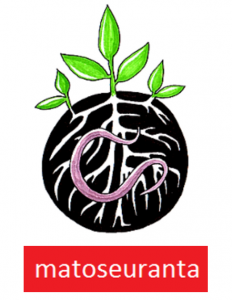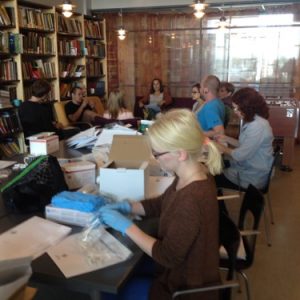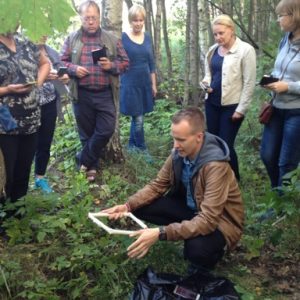Last month we started a large-scale citizen science project (http://matoseuranta.it.helsinki.fi/) to collect data on earthworm distributions and genetic variability. Earthworms impact other animals, plant growth, and greenhouse gas emissions, but we have limited data on their current distributions across Finland and little understanding of how they will respond to climate change. The genetic data we collect will help us to assess what species are present and how populations are related to each other.
(http://matoseuranta.it.helsinki.fi/) to collect data on earthworm distributions and genetic variability. Earthworms impact other animals, plant growth, and greenhouse gas emissions, but we have limited data on their current distributions across Finland and little understanding of how they will respond to climate change. The genetic data we collect will help us to assess what species are present and how populations are related to each other.
To kick-off the project, we invited local teachers to attend a sampling demonstration, while teachers from outside Helsinki watched via live-stream. Over 90 schools across the country are participating using a smartphone app and curricular materials available on our website. With a lot of help from GCC and members of the Metapopulation Research Centre, we sent out sampling kits to all schools, which contained mustard powder, instructions, and materials for genetic sampling. The mustard powder is used to extract earthworms from the ground – it causes them to come to the surface of the soil by irritating their skin but does not harm them.
Data are now starting to be submitted! Results will be displayed on a map on our website after data has been checked and verified.

Package assembly during MRC coffee break

Sampling demonstration with teachers
